It can’t be denied that as far as martial arts movies go, the best ones come from Asia, particularly Hong Kong during their action heyday, which was arguably the 70s, 80s and first half of the ’90s. It’s tough to compete with the likes of the Shaw Brothers and the drunken master known as Jackie Chan. That said, martial arts movies were also making a foothold in the States decades ago, thanks mainly to Bruce Lee-mania following the release of Enter the Dragon. Before that movie, very few actors in Hollywood seemed like they were credible martial artists, except maybe James Coburn, a student of Lee’s, who pulled off some pretty good-looking moves in the otherwise silly Our Man Flint movies. Steve McQueen also had training but didn’t use martial arts on screen. Up to then, though, the most notable uses of martial arts in movies usually revolved around Judo, with James Cagney showing off some good moves in the film Blood on the Sun, while Spencer Tracy – who was HEAVILY doubled, demolished Ernest Borgnine in the classic thriller Bad Day at Black Rock with only one arm. But, in the seventies, fight sequences started to get better, with the Asian influence especially notable in Blaxploitation movies because many of the stars, including Fred Williamson and Jim Kelly, had legit training. When Chuck Norris came along towards the end of the decade, you also started to see mainstream stars dip their toes into martial arts. Still, sometimes the results weren’t pretty, such as when Richard Burton uses drunk-fu to beat up a racist in the abysmal melodrama The Klansman (check out my choice for the worst fight scene ever right here).
In the eighties, fights in American movies started to get good. However, the way they were shot often didn’t quite match up to what was happening in Hong Kong, with a great example being the climactic fight between Mel Gibson and Gary Busey in Lethal Weapon. Both actors had been extensively trained in a variation called Jailhouse Rock, which was popular in prisons, but there was too much rain and close cutting to showcase the movies. That said, there were some great American martial arts movies then – and loads of great ones are being made now, so here’s our list of the best American martial arts movies ever made. Note that movies like The Matrix or John Wick, which married martial arts with gunplay, didn’t make the list, with this dedicated more to straight-up martial arts mayhem.
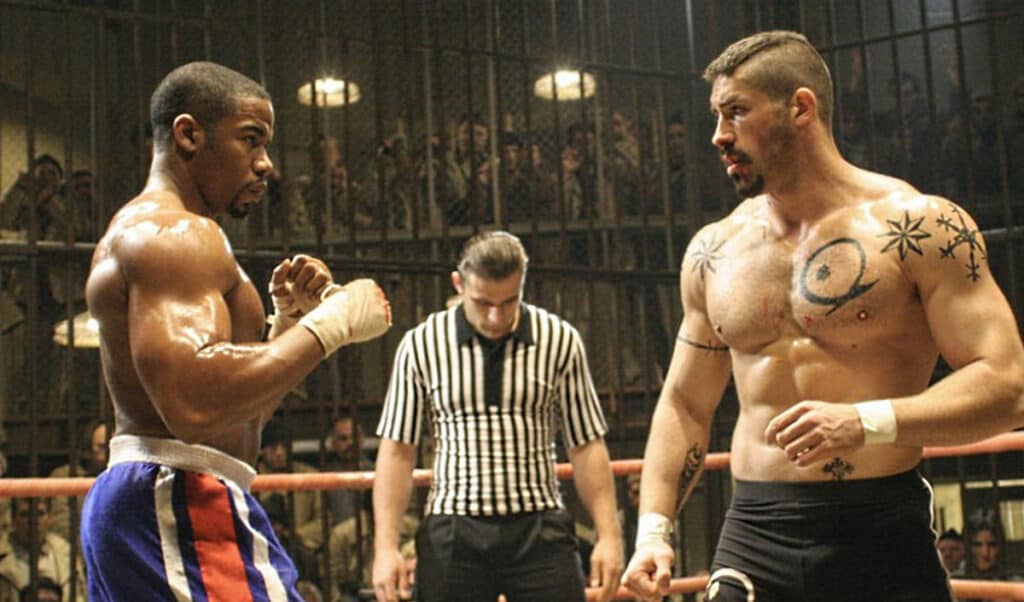
Honorable Mention: The Undisputed sequels:
So, if you know action, our mentioning these sequels probably established us as somewhat legit, as director Isaac Florentine and his leading men, Michael Jai White (who holds seven black belts!) and Scott Adkins, brought something new and fresh to the DTV world. The first two sequels, Undisputed 2 and 3, are arguably more famous than the now obscure Walter Hill movie they’re sequels to.
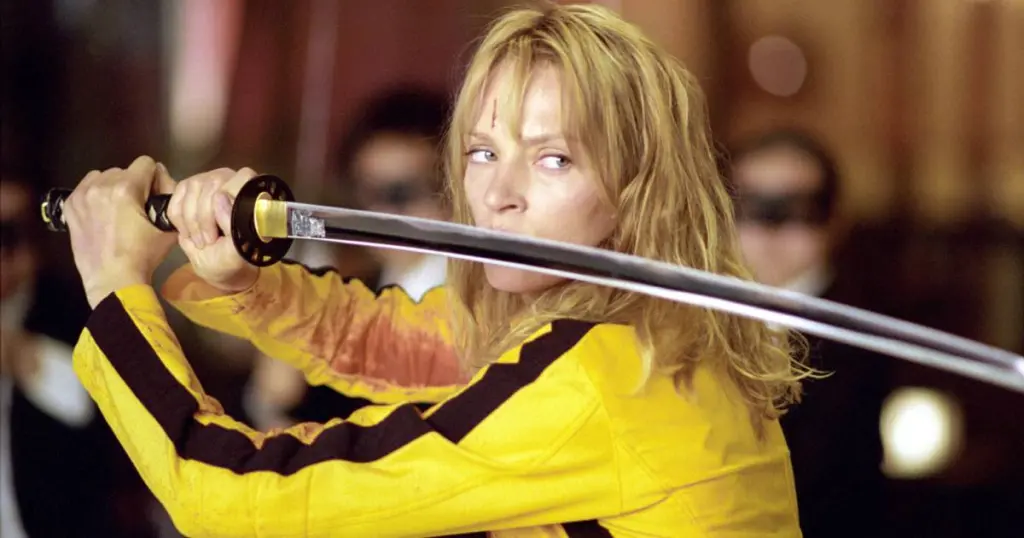
10. Kill Bill:
Quentin Tarantino’s Kill Bill pushed the envelope for martial arts mayhem, but then again, being a student of film, should you expect anything else? Tarantino had Yuen Woo Ping as a choreographer plus, The Street Fighter himself, Sonny Chiba, along with the very proficient David Carradine (who only really shows off his moves in a deleted sequence opposite Michael Jai White), and Uma Thurman. For my money, the best fight sequence in the film is the first one, where Thurman goes at it with Viveca A Fox, but the House of Blue Leaves sequence is also a classic.
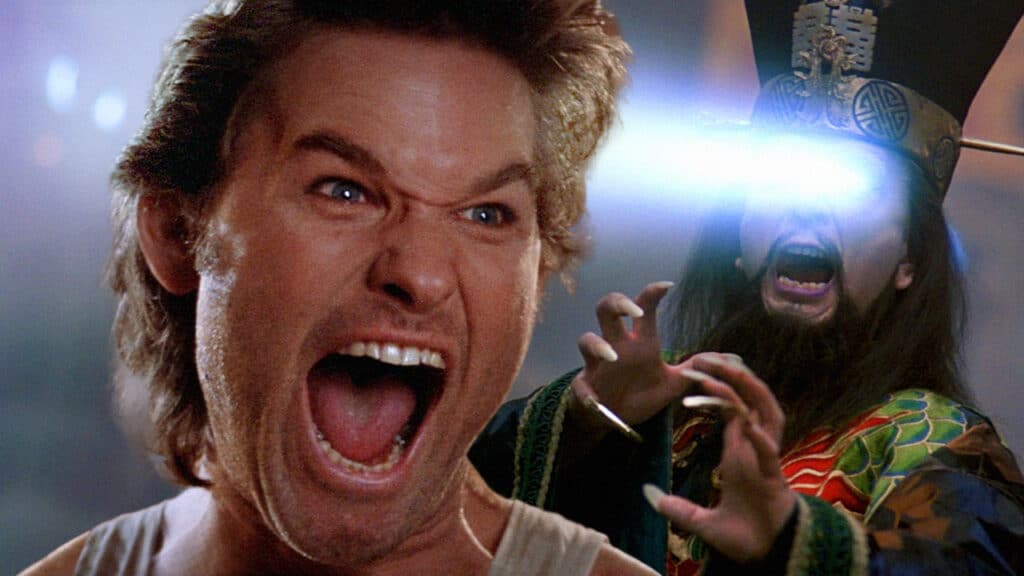
9. Big Trouble in Little China:
At the time, this movie was a box office flop, but years later, people finally caught on and started digging the fact that John Carpenter was making a beautiful Hong-style action fantasy movie in the vein of Mr. Vampire and Zu Warriors. The martial arts in this beats anything happening in American action movies at the time, even if much of it is wire-fu in the classic WuXia fashion.
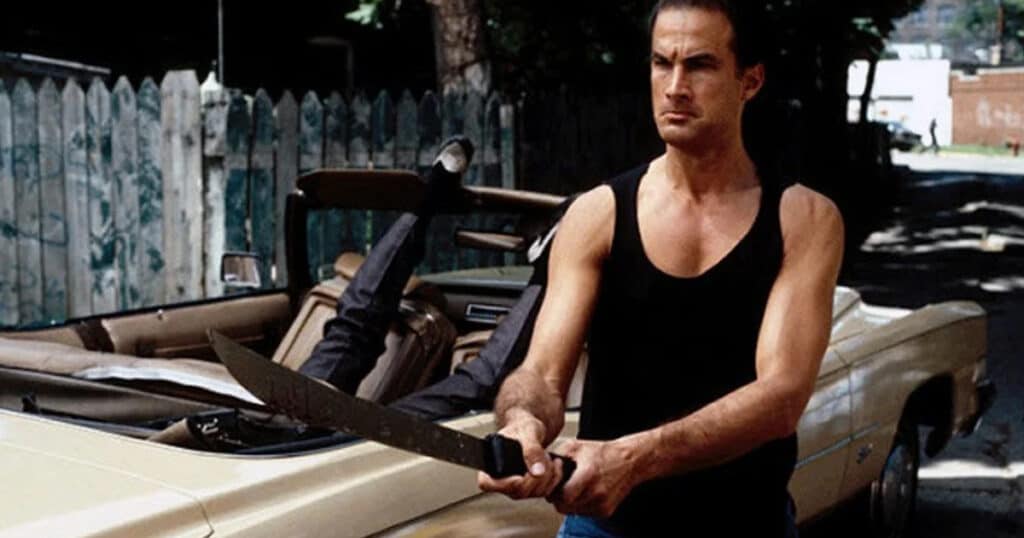
You can’t do a best American Martial Arts movie list and not include Steven Seagal. Granted, he never really made a pure martial arts movie in his heyday, but the ultra-violent aikido style he broke out in Above the Law and those first few movies were highly influential on American action movies of the area. At his best, Seagal was excellent, but it could be argued that the lean and mean Seagal was only ever present in those first five movies, with everything after Under Siege going downhill. Too bad.
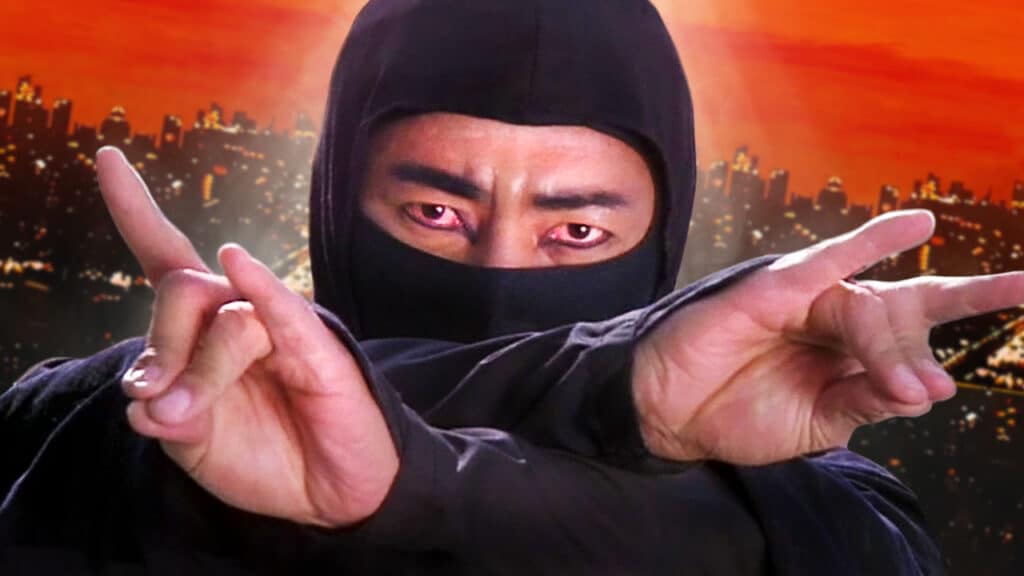
7. Revenge of the Ninja:
Cannon Pictures did more to bring Ninja’s into the mainstream than any other movie studio. While their first Ninja movie, Enter the Ninja, is a joke, the sequel, Revenge of the Ninja, which elevated the first movie’s bad guy actor, Sho Kosugi, to a hero, is a slick movie and the best of their loose Ninja Trilogy. The director, Sam Firstenberg, also did a great job with the first two American Ninja movies, thanks to the untrained Michael Dudikoff being a gifted mimic and athlete, who, likely, could have been a JCVD-level star had Cannon put more money into his movies.
6. Best of the Best:
While the notion of casting James Earl Jones as the coach of a national martial arts team is almost as silly as the fact that the out of shape Chris Penn plays one of their best fighters, Best of the Best is still one of the most legit martial arts films of the era. It mixes the sports genre with martial arts. It gets the attitude of competition better than a lot of other films of this ilk, with it emphasizing sportsmanship and the surprising bond you establish with your opponent, no matter who wins. Philip Rhee is a terrific lead in this, thanks to the fact that his skills are legit. Still, Eric Roberts, despite no training, also acquits himself very well, thanks to the fact that he took the choreography very seriously and got himself into peak physical shape.
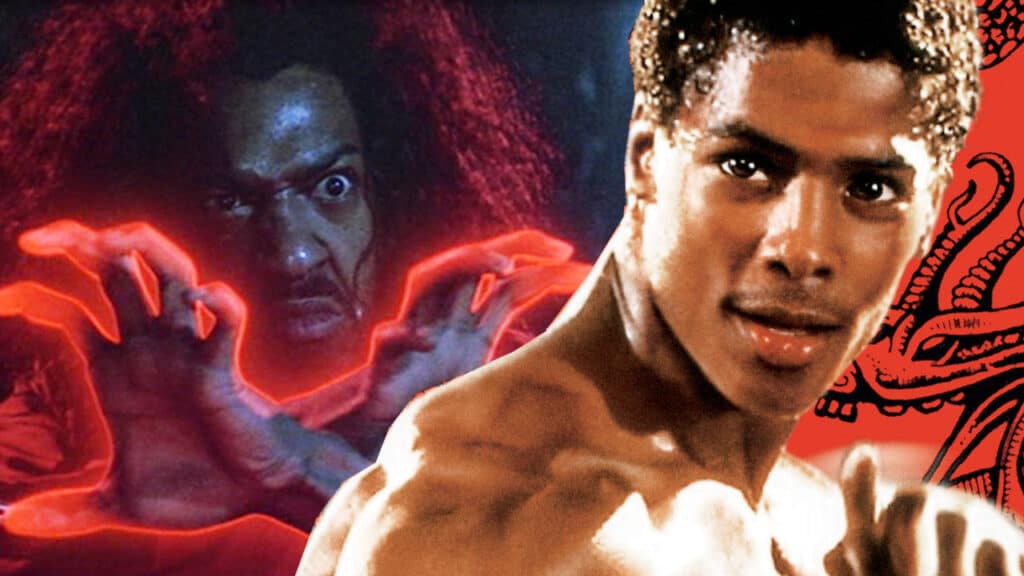
5. The Last Dragon:
Martial Arts movies had a significant cult status in the inner city, and The Last Dragon is Motown’s tribute to the genre, with a young black marital artist named Taimak, our likeable lead, Leroy Green, aka Bruce Leroy. The music is excellent, as are the fights, with the movie stolen by Julius Carry as Sho’nuff, the shogun of Harlem. Carry wasn’t trained, but he proved to be a good mimic, and attitude is everything sometimes.
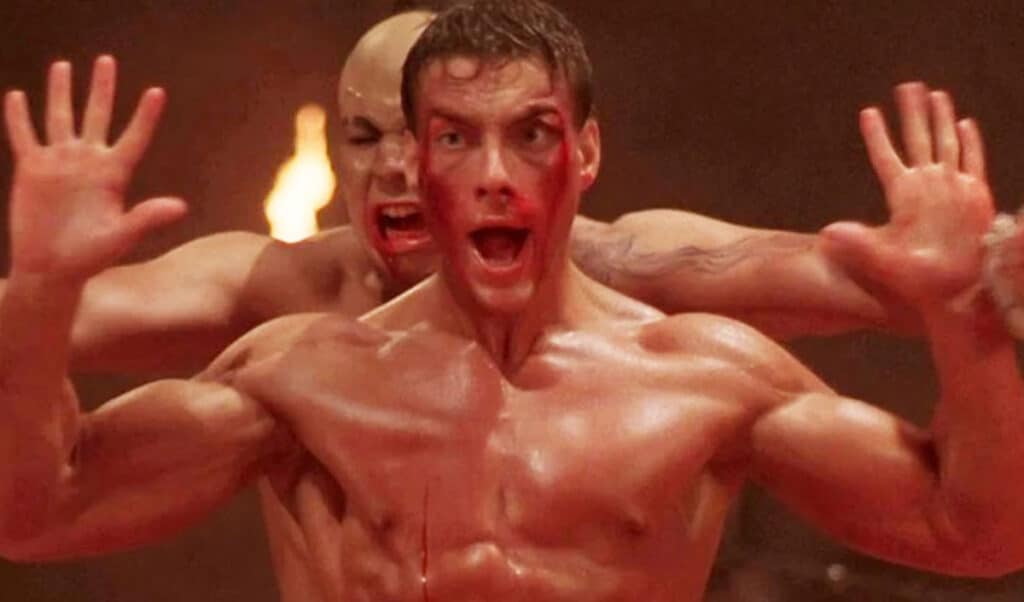
4. Kickboxer:
While often overshadowed by Bloodsport, Kickboxer helped bring Muay Thai into the mainstream, and the movie features Jean-Claude Van Damme at his best, with terrific training sequences, an incredible final battle between JCVD and Michel Quissi’s Tong Po, and Van Damme shaking his butt in a bar fight. Also, who could forget the opponents wrapping their hands in bandages and dipping them in broken glass, which was sent up brilliantly in Hot Shots Part Deux
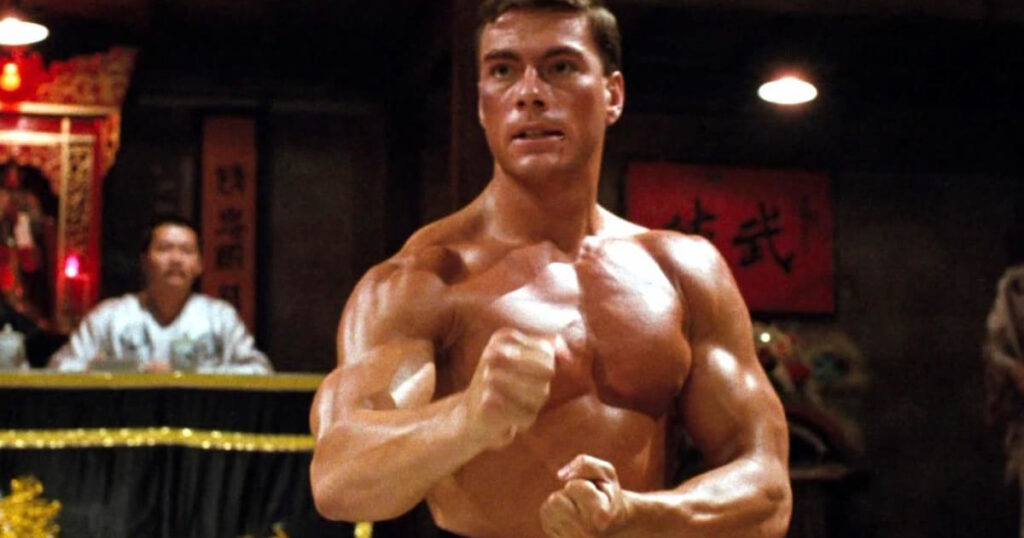
3. Bloodsport:
More JCVD, with this the movie that made him a star. We’ve talked about this a lot on JoBlo, but it introduced the term kumite into the mainstream and also showcases a wide variety of different styles of martial arts. This is a movie made by people who genuinely know the genre
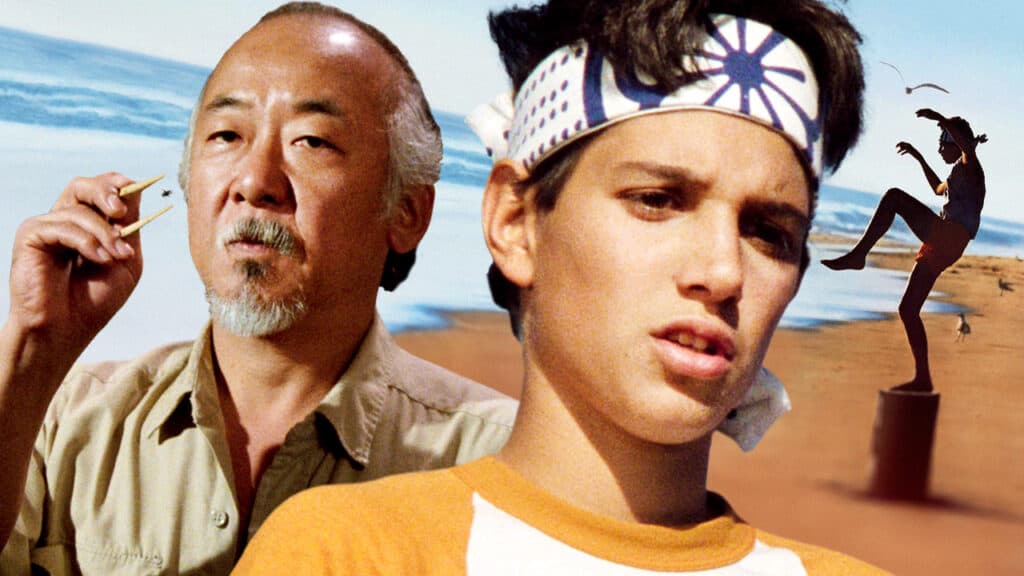
2. The Karate Kid:
While I maintain that the fights in these movies were never great, with Ralph Macchio’s fight skills leaving a lot to be desired (he’s better as a martial artist on Cobra Kai – which has AMAZING fights), this movie did more for martial arts as a practice than any other movie on this list. It led to an explosion in Karate schools across North America, and, thanks to the gentle discipline and philosophy of Mr. Miyagi, proved that karate, and martial arts in general, is an art form that can help a lot of people discover an inner strength they never knew they had.
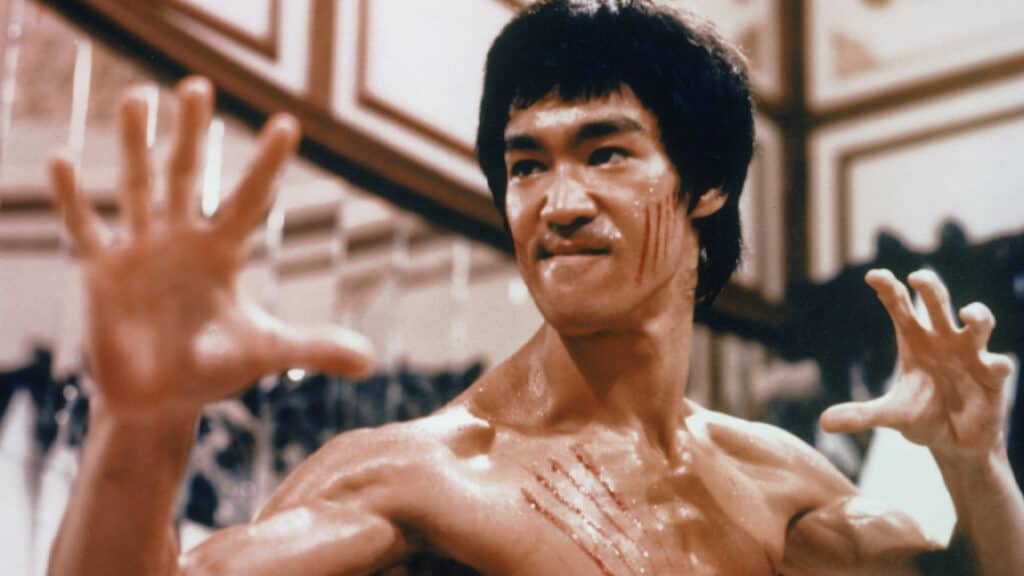
Bruce Lee’s only American movie, it came out posthumously and was such a cultural phenomenon that it led to a kung-fu craze that was so big, within a year, you had Roger Moore’s James Bond kung-fu fighting his way through The Man with the Golden Gun. Lee’s so damn good in this, but John Saxon also acquits himself well in the fight scenes; Jim Kelly, in some ways, is almost as iconic as Bruce is with his massive afro.
So that’s our list – special thanks to EJ Tangonan, who edited this video, for helping brainstorm this list.
Originally published at https://www.joblo.com/the-best-american-martial-arts-movies/



